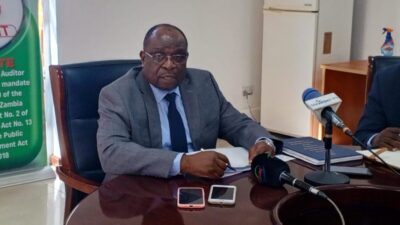The Educators’ Trade Union of Zambia (EdTUZ) has opposed the proposed nationwide strike action called by the National Action for Quality Education in Zambia (NAQEZ), urging members to exercise caution and prioritize lawful engagement.
EdTUZ President, Thomas Sendoi, stated in a press release issued in Lusaka on Monday that the proposed strike may not be in the best interests of union members and could potentially violate international labour standards, including the principles of collective bargaining under International Labour Organization (ILO) Conventions 98 and 154.
“EdTUZ remains committed to upholding the principles of freedom of association and collective bargaining,” Sendoi said.
He said: “The rights of union members must be respected and protected in accordance with the Industrial and Labour Relations Act Cap 269 and international labour standards.”
Read more: Union calls for urgent action on rural teachers’ living conditions
Sendoi emphasized that the state had a legal obligation to protect trade unions from external interference, as outlined in Article 3 of ILO Convention 87, and called on the government to fulfill this obligation by safeguarding union autonomy.
He acknowledged the concerns raised by teachers and NAQEZ, including the delayed implementation of salary upgrades, but insisted that any form of protest must be carried out within the confines of the law.
“We empathize with the frustrations of our teachers. However, any action must align with the principles of freedom of association and lawful processes,” he said. “We urge our members not to participate in any strike action without proper consultation and official union procedures.”
His remarks followed a statement by NAQEZ Executive Director Dr. Aaron Chansa on Sunday, April 13, 2025, proposing a nationwide industrial strike over the government’s failure to upgrade more than 40,000 teachers to higher salary scales as previously promised.
“In the last three years, the Republican President, Ministry of Finance, and other authorities have repeatedly pledged to adjust teachers’ salaries—but to no avail,” Chansa said. “This continued inaction has left teachers feeling disrespected, demoralised, and betrayed.”
He added that the unfulfilled promises pose a serious threat to the quality of education in Zambia and called on all teacher unions to begin mobilizing their members under Sections 76, 77, and 78 of the Industrial and Labour Relations Act.
“The time for patience has expired. The time for action is now,” Chansa declared.
WARNING! All rights reserved. This material, and other digital content on this website, may not be reproduced, published, broadcast, rewritten or redistributed in whole or in part without prior express permission from ZAMBIA MONITOR.












Comments